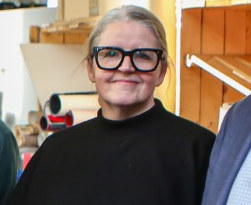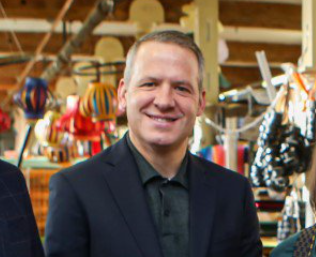Scrap intercepts non-toxic business waste from landfill and turns it into arts materials for schools and others in the local community.
Key information
-
Focus area
Social lending -
Region
Yorkshire and the Humber
-
Challenge:
Worldwide, we throw away 2.12 billion tonnes of food, packaging and other waste every year – all of which has a negative impact on our planet. By 2050, global waste is expected to grow to 3.4 billion.
What’s more, Scrap founder Louise Lucas saw a great and growing need for low-cost arts materials for schools and community groups in her local area while working for several years in education.
-
Approach:
Scrap diverts non-toxic business waste into arts materials for the local community.
It also provides local schools and individuals with affordable art, craft and play resources as well as training and workshops in how to use them creatively.
-
Revenue Model:
Scrap generates income from a shop which sells low-cost arts and crafts resources that would have gone to waste. It also provides ScrapSheds – which are sheds filled with recycled materials and equipment suitable for outdoor play for schools – as well as running environmental corporate days and training and craft sessions for adults and children.
Scrap was established in a small unit in Leeds and with support from social investment through Key Fund expanded into a larger shop and workshop space at Sunny Bank Mills in Farsley. The funding also helped Scrap turn from a funding-reliant organisation to a self-sustainable not-for-profit social enterprise.
-
Impact:
Scrap diverts around 600 skips full of non-toxic business waste every year from landfill into arts materials for the local community.
As well as avoiding an estimated 100 tonnes of waste annually, it provides more than 50 local schools and up to 12,000 local people with affordable art, craft and play resources.

